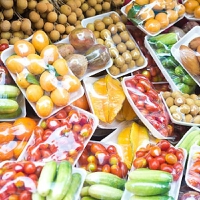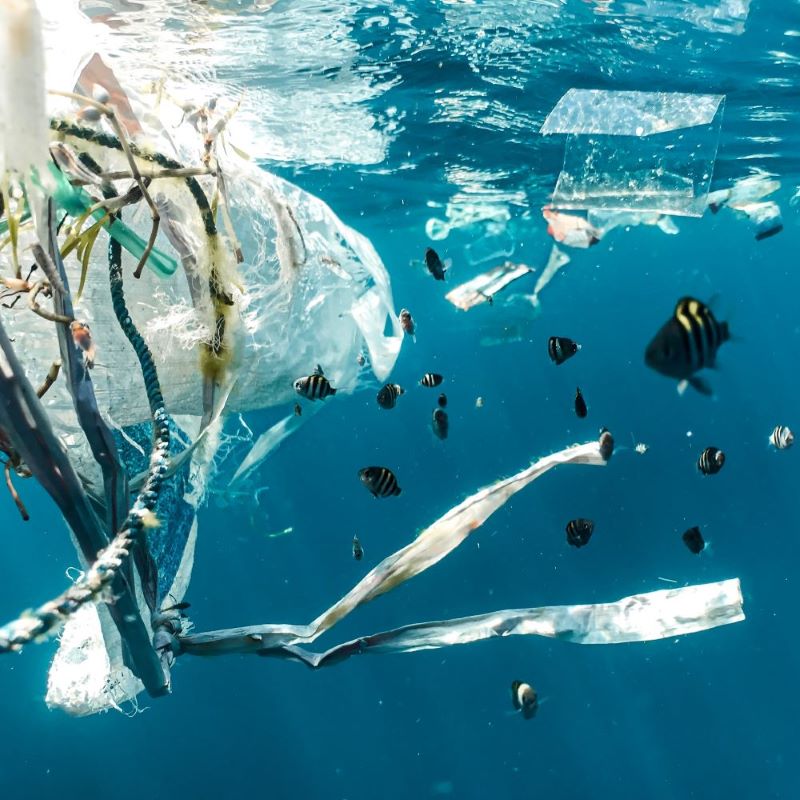

Finnish company Raisio has signed the Green Deal on reducing the consumption of single-use plastic (SUP) food containers at a time when the F&B industry continues its efforts to reduce its dependence on such containers and promote a circular economy.
The company will reportedly explore substitutes to single-use plastic food containers and packaging solutions that contain less plastic than the current level.
Sari Koivulehto-Mäkitalo, CLO, Legal Affairs and Corporate Responsibility at Raisio, states:
“The Green Deal on reducing the consumption of single-use plastic food containers only applies to products that are sold individually, are consumed directly from the container and do not need to be prepared by the consumer before consumption, meaning that it only applies to a very small part of Raisio’s product range. Therefore, we will continue our long-standing work on material efficiency in addition to the Green Deal.”
The European Parliament (EP) states that: “Each European generates almost 190kg of packaging waste annually.” The figures prompted the EP to urge consumers to bring their own container for take-away food and drinks to tackle such waste.
Sustainability advances
Raisio has reportedly been carrying out sustainability work “for years” to reduce the amount of plastic and other plastic packaging and materials.
“We are committed to educating our employees and communicating to consumers about the environmental impact of single-use packaging, alternative solutions, recycling options and litter prevention.”
The food formulator aims to bring down the “environmental impact” of food production, distribution and consumption through packaging made from renewable materials, food loss and food waste and better utilization of production side and waste streams.
SUPs pose a threat to marine life on entering water bodies, even propelling antibiotic resistance in aquacultures, say researchers.Last year, Raisio partnered with Nordic Umami Company to upcycle side streams of Raisio’s plant-based products to produce natural umami.
In other sustainability news, Celebration Packaging launched PFAS-free EnviroWare compostable food packs last month to help manufacturers move away from SUPs and reduce their carbon footprint.
Spike in usage and EPR
As per Minderoo Foundation’s latest Plastic Waste Makers Index , SUP production has increased by 6 million metric tons from 2019 to 2021, further outpacing recycling by a factor of 15.
Last week, Greenpeace highlighted that Unilever sells roughly 1,700 single-use plastic sachets every second. The quantity is set to reach 53 billion sachets by the end of this year, often sold in vulnerable nations where consumers rely on piecemeal products amid insufficient waste management facilities.
Authorities are taking note of the damaging effects of the packaging as well. Last month, New York’s Attorney General told Packaging Insights that single-use plastic breaks down and releases microplastics when left in the environment. She deems it a “persistent and dangerous” form of pollution and sued PepsiCo over reportedly harming consumer and environmental health with its single-use plastic packaging.
Moreover, the EU's SUP Directive of 2019 intends to reduce the impact of certain plastic products on the environment. This led to the UK government banning all types of single-use plastic encompassing biodegradable, compostable and recycled items on October 1,2023.
From January 5, 2023, the Extended Producer Responsibility (EPR) schemes for SUP products that are placed on the EU market came into effect, which directs producers to pay for waste collection, litter clean-up and consumer awareness measures.
In February, we spoke to the ERP’s formulator, Thomas Lindquist — the inventor of EPR — who commented on the role of consumers and retailers in implementing such measures. He stated:
Returnable plastic packaging could cut back GHG emissions and water use by 35–70% compared with SUPs, says the Ellen MacArthur Foundation.“It cannot be done without consumers. The question is, how much can you rely on consumers? We need to do a lot better with awareness and understanding. Regarding retailers, it’s a tricky issue because they have a limited role today and the chances for them to select products, packaging and so on, are rather limited.”
Exploring alternatives
The F&B industry is on its way to encourage SUP substitutes. Last month, Estonia updated its packaging legislation to tackle the consumption of SUPs and incentivize reusable materials. The law faced a rebuttal from the European Paper Packaging Alliance which says plastic should be replaced with paper alternatives.
The Ellen MacArthur Foundation suggests that returnable packaging could be an environmentally and financially competitive alternative to single-use packaging for certain products. It says that returning such packaging could lower GHG emissions and water use by 35–70% compared with SUPs.
Meanwhile, VTT 's foam-formed cellulose-based packaging could give suppliers a sustainable and affordable alternative to single-use plastic.






